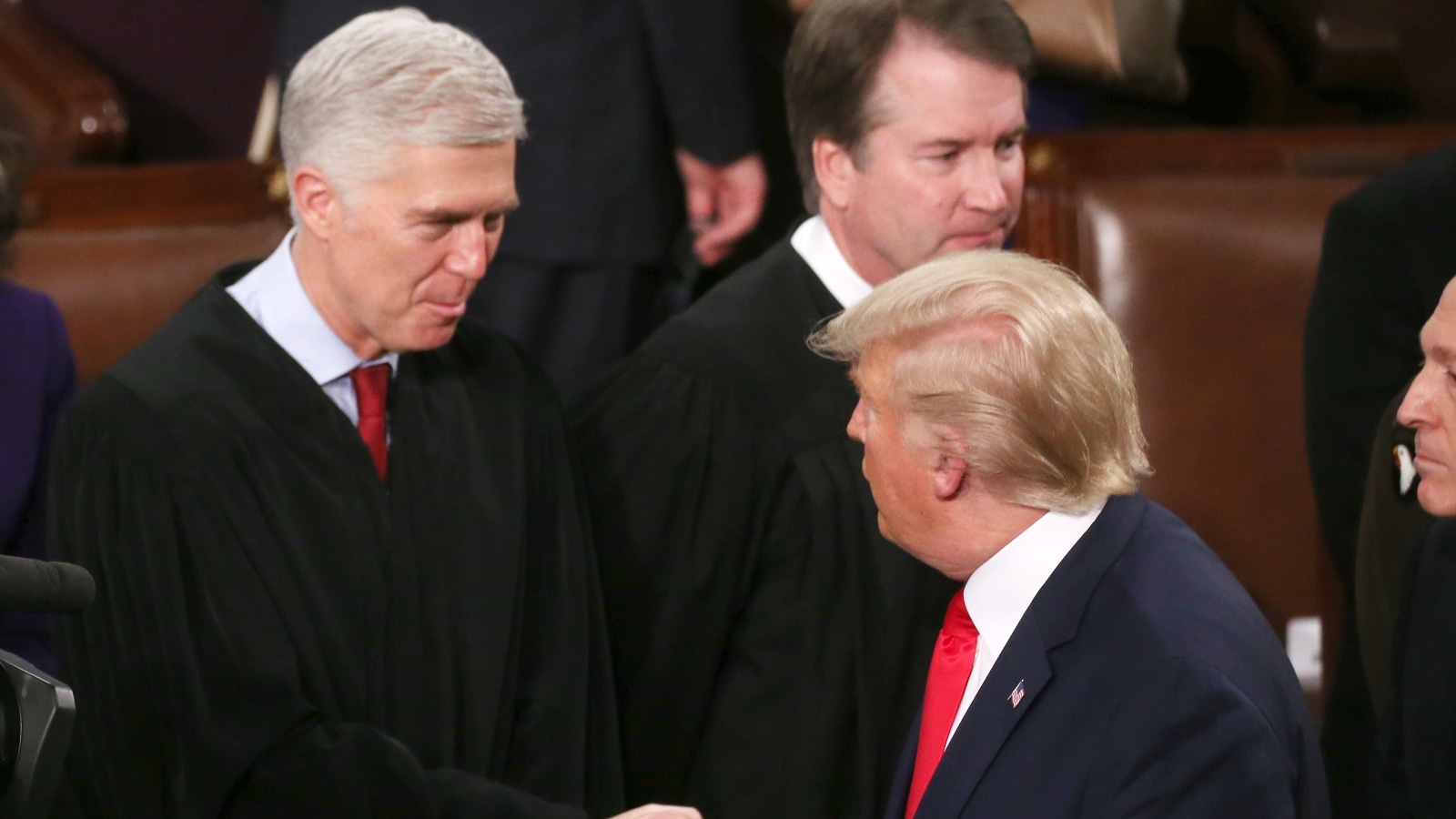OPINION: This article may contain commentary which reflects the author's opinion.
U.S. Supreme Court Justice Neil Gorsuch argued that former presidents like Donald Trump should have some protection against subsequent attacks after leaving office.
“It didn’t matter what the president’s motives were; that’s something courts shouldn’t get engaged in … I am concerned about future uses of criminal law to target political opponents based on accusations about their motives,” the Supreme Court justice said during oral arguments regarding Trump’s immunity case late last month.
Gorsuch, who was appointed by Trump, took part in discussions during oral arguments with the other eight justices concerning the former president’s immunity from prosecution in a case brought by Special Counsel Jack Smith related to the election.
Gorsuch suggested during the hearing that if the nation’s highest court decides not to rule that presidents should have some degree of immunity, then future commanders-in-chief may be forced to pardon themselves before leaving office. The justice said he didn’t want to decide whether or not a president could exercise that power, the Epoch Times noted.
“We’ve never answered whether a president can do that; happily, it’s never been presented to us,” Gorsuch said regarding presidential self-pardoning power.
“What would happen if presidents were under fear that their successors would criminally prosecute them for their acts in office?” Gorsuch also asked, citing a hypothetical situation in which former President Barack Obama could face prosecution for ordering a drone strike that killed civilians.
He and several other conservative-leaning justices said that they were less concerned about Trump’s charges but more concerned about the Supreme Court’s ruling on immunity in general. “We’re writing a rule for the ages,” Gorsuch said.
Separately, in a decision that pitted Texas’ attempt to keep adult content away from minors against constitutional protections for free speech, the Supreme Court declined to strike down a state law that requires online age verification to access pornographic websites.
The justices rejected a motion from a trade association representing adult entertainment performers and other law challengers to stay a lower court’s decision that the measure probably did not violate the First Amendment protections against government interference with free speech, with no dissents noted in the public record.
“The 2023 law requires any websites whose content is more than a third ‘sexual material harmful to minors’ to require all users, including adults, to submit personally identifying information verifying they are at least 18 years old to gain access. Several other states have enacted similar laws,” Newsmax reported.
“The Texas law’s challengers, represented by the American Civil Liberties Union and others, have said that it poses security and privacy concerns by exposing users to possible identity theft, tracking, and extortion. They also said that its effectiveness is undermined given that it would not restrict social media or search engines, where pornography is rampant,” the outlet added.
The challengers countered that laws like this are not the most effective way to protect minors; content-filtering software does.
Texas claims that the need for its law stems from the fact that children can now more easily and instantaneously access “virtually unlimited” hardcore pornography thanks to smartphones.
The law, Texas said in a filing, “simply requires the pornography industry that (makes) billions of dollars from peddling smut to take commercially reasonable steps to ensure that those who access the material are adults.”
The plaintiffs include businesses that operate multiple pornographic websites, such as xnxx.com and Pornhub.com, as well as the Free Speech Coalition, a trade association of adult content creators, distributors, and performers.
The day before the law was enacted, Senior U.S. District Judge David Alan Ezra in Austin issued a preliminary injunction to stop it. “Constitutionally protected speech will be chilled,” according to Ezra, and this could include non-porn websites that show R-rated films or materials on sex education for high school kids.
The 5th U.S. Circuit Court of Appeals, located in New Orleans, upheld the law’s enforcement while it considered the case. In March, the court declared that the plaintiffs’ First Amendment challenge to the age verification requirement was unlikely to succeed, overturning Ezra’s injunction on that particular provision.
